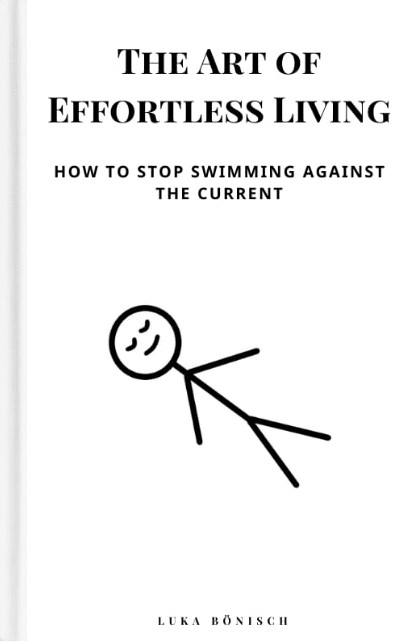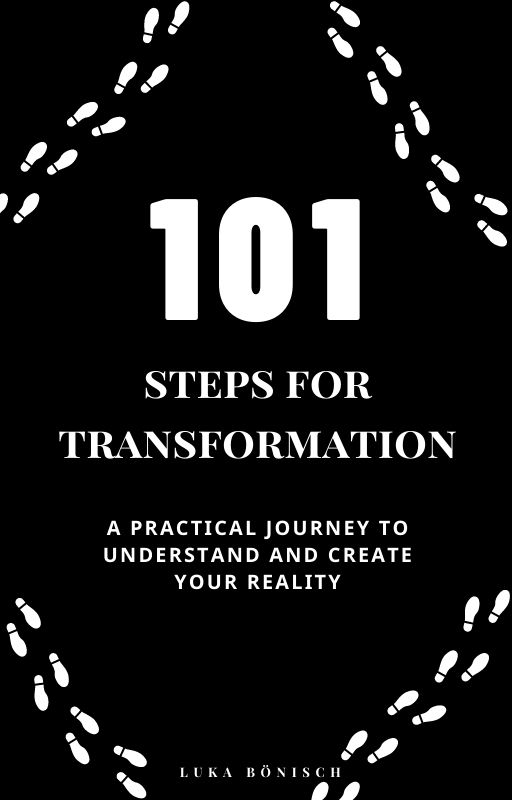It seems that you are interested in how to get started with spirituality. That’s cool. Spirituality is more than just hype, it’s part of our human essence.
What is Spirituality?
The Oxford dictionary defines spirituality as; the quality of being concerned with the human spirit or soul as opposed to material or physical things.
When talking about spirituality we often assume that it’s something solely metaphysical. Before I started my spiritual journey, I associated spirituality with gurus sitting on a mountain in India and meditating all day long.
But spirituality can be rooted in our current reality and you don’t have to move to an ashram in India.
Neither do you have to abandon all worldly possessions nor change your way of life completely.
“Awakening is not changing who you are, but discarding who you are not.” – Deepak Chopra
However, engaging in spirituality might make you want to change your way of life completely. People often become interested in spirituality when they search for meaning in life.
Generally, spirituality is a broad concept and can be linked to existential questions of life:
• What is the meaning of life?
• Why do I suffer?
• What is the right way to live?
• Do things happen for a reason?
• What comes after death?
Spirituality can be connected to religion, nature, art, and even certain forms of physical movements, like martial arts.
Hence, spirituality is a subjective experience and can change or develop throughout one’s life.
Furthermore, spirituality is often referred to as feelings of sacredness or transcendence.
People who have profound spiritual experiences often report a deep sense of aliveness and interconnectedness, or even feeling the presence of a higher being.
Getting started with spirituality, can therefore also improve your well-being.
Spirituality and Mental Health

Spirituality and mental health are not the same things. But spirituality is an important aspect of mental health; spirituality and mental health are distinct but deeply integrated.
As mentioned before, spirituality implies a meaningful connection with something bigger. This, in turn, can lead to positive emotions such as peace, contentment, awe, gratitude, and acceptance.
Mental health includes psychological, emotional, and social well-being.
Part of that is to cultivate a positive mindset and broaden your outlook on life so that you can cope with the difficulty life throws at you.
This also involves accepting things we cannot change and the fact that we can’t always control our environment, only our reactions to this environment.
A spiritual lifestyle can foster feelings of kindness, empathy, interconnectedness, and compassion which are beneficial for relationships and interpersonal connections and ultimately for your mental health.
More so, spirituality helps you to look within and understand yourself on a deeper level.
Including spiritual practices in your life can connect you to a higher power within yourself while at the same time increasing awareness and resistance against stress and anxiety.
Spirituality also frequently inspires new means of expression like art, poetry or writing, and even dance.
I picked up painting as a creative outlet and it helped me a lot to express and process my feelings and experiences. Hence, I highly recommend you find your creative outlet!
Moreover, the heightened mindfulness and awareness, that often accompanies a spiritual life, help make you appreciate the little everyday things in life.
The fresh breeze on a hot summer day, the birds singing outside your window, the smell of coffee in the morning. Appreciation can boost feelings of abundance and consequently increase your well-being and mental health.
Do not neglect spirituality, even if you don’t believe in God. The positive emotions and feelings linked to spirituality will inevitably improve your psychological health.
Spiritual But Not Religious

Especially in the west, you hear a lot of young people say they are spiritual but not religious.
I think part of the reason is that religion is getting increasingly unattractive for young individuals. Particularly in developed countries where we have access to unlimited information and an ever-increasing array of technology.
Hence, religion can seem outdated to a lot of people as it struggles to help people navigate the increasing complexity of modern life.
Moreover, religion often seems unable to answer moral questions which did not exist when those religions were founded millennia ago.
Nonetheless, we still feel the urge to express or connect to something beyond us, something unmaterial.
This leads to a lot of people neglecting religion and turning towards spirituality as a religious outlet so to speak. This kind of has a contradictory vibe to it.
So, the question then arises can you be spiritual without being religious?
My Experience with Religion
I was raised Christian but at some point, I realized that Christianity led me down a very self-destructive path. Fearing that God would judge all my misbehaving’s the only way, I thought, to repent was to apologize in the form of prayer.
Consequently, I developed an obsessive behavior where I would pray to God apologizing every time I did or said something, I thought was bad. And this would happen a lot.
Moreover, at first, I didn’t see the fault of my approach. Though at some point it all suddenly became so clear to me.
I constructed a judgmental version of God in my head and was afraid I would suffer in the afterlife if I didn’t repent my misdeeds. Through this realization, I decided to reject Christianity and institutionalized religion in general.
Soon thereafter through self-improvement books – one which improved my life especially is The Four Agreements – I got interested in spirituality.
After learning more and more about spirituality and picking up meditation I understood that this is what Christianity could never give me – a feeling of peacefulness, awareness, and interconnectedness, a feeling that there is a higher power, but it’s not judging me.
One of the definitions for religion I could find is:
“A set of beliefs concerning the cause, nature, and purpose of the universe, especially when considered as the creation of a superhuman agency or agencies, usually involving devotional and ritual observances, and often containing a moral code governing the conduct of human affairs.” (adapted from dictionary.com)
Looking back at it now I see that all I did is create my own belief system, my own moral code, my own rituals – my own religion.
As an explanation, I think I just wanted to remove myself as far as possible from the term religion and the stigma it has.
For me, it was my bad experience with religion that led to my search for something else; for others, it might be a grudge against religion.
Regardless, everybody has a reason why they are religious or not.
You don’t have to be Christian, Muslim, Jewish, Buddhist, or Hindu. You can craft your own religion that goes beyond the definition of religion.
You might even say that religion is institutionalized spirituality. But realize that both, spirituality and religion, are not about the words or their definition.
It’s about the way you live your life and your dedication to the truth.
To conclude, religion and spirituality have some valid distinctions. While religion has more of a frame as in a defined set of rituals, rules, beliefs, and morals, spirituality is generally free and beyond religion.
Many spiritual people try to find their own way and belief. This can incorporate elements of religions and philosophy as much as it can be based on principles developed through self-reflection.
Nonetheless, I think spirituality and religion are not completely separate things and overlap in some ways. But in the end, it’s all a means to reach the same destination only the approach differs.
Benefits of a Spiritual Life
As materialism and the external distractions nowadays are increasing it’s easy to be seeking outside for solutions, happiness, peace.
A spiritual life teaches us to look within and beyond.
We become more reflective and appreciative and start to see our fellow human beings as mirrors of ourselves.
Moreover, you can create your spiritual practice according to your own beliefs, which can improve your sense of self and empowerment.
Another benefit is that you develop increased compassion and acceptance.
Spirituality can help you to strengthen your relationships because you’ll bond with your partner, family, and friends on a deeper level. You’ll also learn about yourself and get to uncover your true self.
Through acceptance of your flaws and strengths, you will not be ashamed of them anymore. Subsequently, this can raise your self-esteem, because you don’t try to be somebody else.
In general, spirituality can set you on a path to peace and freedom, and isn’t that what we all want?
No matter how far we travel or how much physical freedom we have, true freedom can only be attained if you bring the body, the mind, and the spirit into balance.
How to Get Started with Spirituality
There are many different spiritual practices that you can pick up and incorporate in your life to get started with spirituality.
But how can we integrate spirituality into our mindset and philosophical outlook?
The first step is to be aware. Just be aware of the moment.
What are you doing right now? Are you aware right now and are you aware that you are aware?
Awareness means to be present, to not dwell in the past or worry about the future, but to be right here.
Being aware is not an easy feat for most people. Meditation and prayer are good ways to access a state of awareness.
Another good practice for awareness is to be conscious of your breathing. You can always use it as an anchor for the present moment.
The next step is to let go.
This goes hand in hand with awareness. As you are aware, you are aware of your thoughts, your feelings, your desires, your deeds.
By becoming aware of them you accept them and through accepting them you surrender them and let them go.
Moreover, feelings are energy. So be aware of your feelings, observe them, let them run their course, and then let them go.
As you consistently surrender and let go of all negative feelings and the associated thoughts, your awareness and energy will rise.
Make a commitment to maintaining a stable level of awareness. Being in a constant state of awareness and energy will automatically increase your awareness and energy.
By continuously being aware, surrendering, and letting go you will reach higher levels of consciousness.
Trust that there so something greater than yourself – an interconnectedness.
You don’t have to believe in God but since most of us are full of beliefs, you might as well believe some unexplainable stuff.
Believing in some higher power is not being a fool. Believing is accepting and knowing that there is more than the human senses – infinite energy, something ungraspable.
Asides from that, isn’t life more sympathetic if you see everything as filled with energy and life?
When you treat your environment with respect it will reflect positively on all other parts of your life.
Respect and cherish your environment. Do this, as stated before, by going out into nature and appreciating all life and the time you spend outside.
I cannot stress enough how beneficial and important it is to incorporate time in nature into your lifestyle.
Being present outside in nature is already as spiritual as it gets.
△△△
I hope this article could give you some inside into what spirituality is and how to get started with spirituality.
Luka
Latest posts by Luka (see all)
- The Maelstrom Called You — Why Every Person Is Ecelctic - July 17, 2025
- How to Use Words Correctly - July 8, 2025
- Guilty Until Imagined Innocent - June 25, 2025


